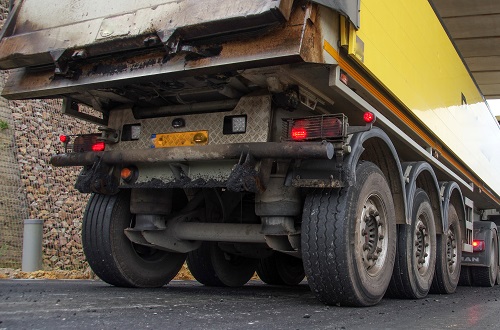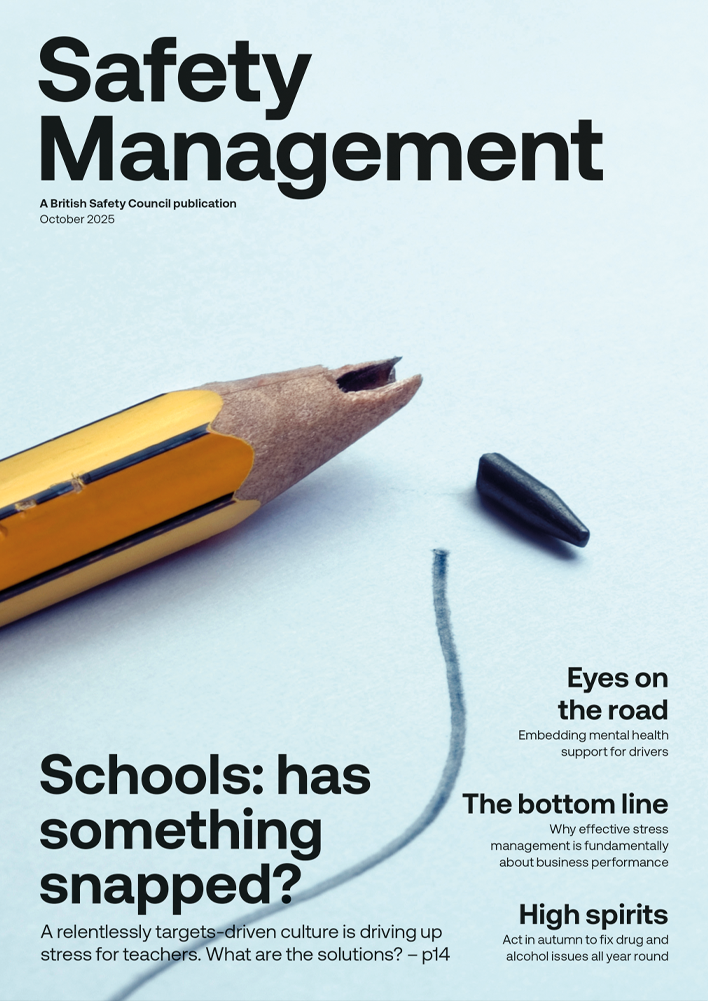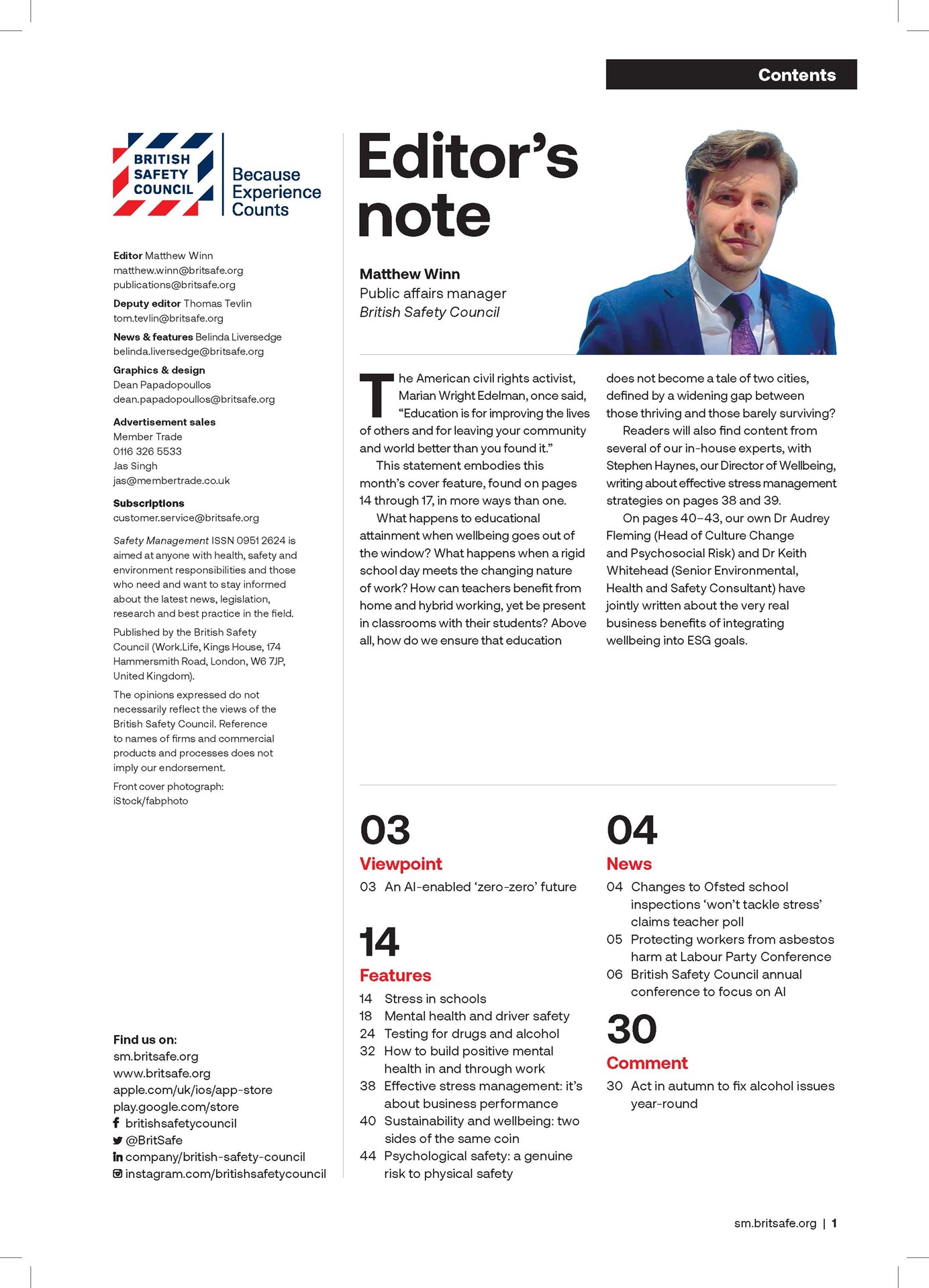Mental health support in workplaces of the future is likely to be much more tailored to individual employees’ needs, based on data collected about each person, and will recognise the increasingly blurred boundary between work and home life.
News
Future mental health support at work will be tailored to individuals and based on data
These were some of the predictions made by Sam Downie, managing director of mental health charity Mates in Mind, at British Safety Council’s recent online Workplace Wellbeing conference.
Employers will move from being reactive to issues affecting their workforces to a situation in which they are “collecting multiple sets of data” that enable them to provide “personalised support, informed by individuals’ strengths and weaknesses,” said Downie.
 Photograph: iStock/Kobus Louw
Photograph: iStock/Kobus Louw
“The key must be how [support] is presented to the individual and how it’s offered,” she added. “While we may have a lot of data that can give us a good idea of what intervention to offer at what time, we need to think about how to provide that recommendation and how to support the individual in their choices about whether they take it up or not.”
Targeted areas of support that could be offered by companies to individual workers include financial advice for those struggling with debt; counselling services for employees affected by alcohol or substance abuse; and help with family or relationship issues. Mental health support in the future could also extend beyond an organisation’s direct employees, recognising the blurring boundary between life inside and outside of work as more people work from home. There are questions about how this might be achieved, however.
“If we’re looking at the future of mental health at work and acknowledging the shifting boundary between work and the rest of life, how are we going to respond to the change in how people are working now?” asked Downie. “Will we be reaching beyond work to reach people outside of work, and what might that look like? Will we be building relationships with those entering the workforce before they join? And will we be maintaining relationships with those leaving the workforce?
“And what are the challenges created by having more information about employees in a changed employment relationship?”
In a world where employment relationships are “less contracted” than in the past, with employees working remotely, moving between organisations more frequently and, perhaps, working for more than one company at a time, this could create issues with how data is held.
“If that’s the case and we’re looking to make very tailored support interventions, how will we hold the data that we have about individuals ethically?” Downie asked, noting that because there is still “stigmatisation around mental health,” people could be cautious about sharing their data. Building a “culture of trust” and handling data “ethically” will, therefore, be key.
In five years’ time, Downie sees the best employer approach as being holistic, recognising employees as individuals and reaching beyond their direct reports.
“I think their ways of supporting will extend beyond just their direct employees and will recognise that dissolving boundary between work and home – both recognising the risk of that and the benefit to both sides,” she said. “I think it is about those tailored interventions, so using lots of information, using the digital transformation to understand the individual, their strengths and vulnerabilities, and offering support that is timely and is related to the individual in their circumstance and their changing work demands.”
NEWS

Top jobs in safety in greatest demand right now, says recruiter
By Belinda Liversedge on 29 October 2025
Senior safety professionals who can influence culture, lead transformation, and align health and safety with wider business goals are in growing demand by employers, the recruiter Irwin & Colton have said.

HSE inspectors target Manchester construction sites as part of health drive
By Belinda Liversedge on 28 October 2025
HSE inspectors made a series of proactive inspections last week in Manchester city centre to tackle ill-health on construction sites.

Headline fines highlight common errors in reversing
By Belinda Liversedge on 24 October 2025
Reversing incidents have come into sharp focus in recent months, says HSE with two high profile fines totalling £3.5 million for the death of two workers.



